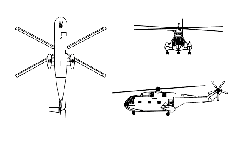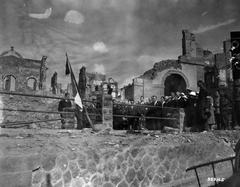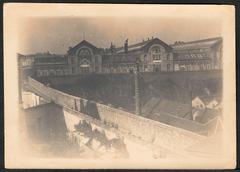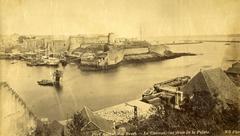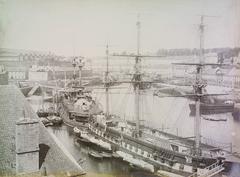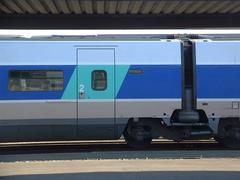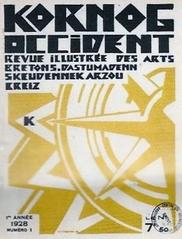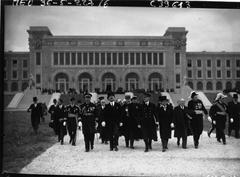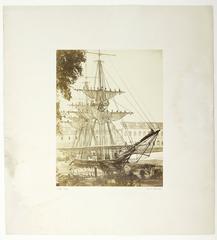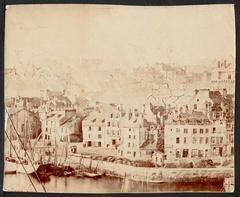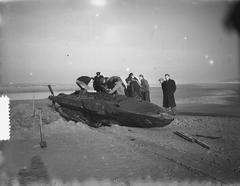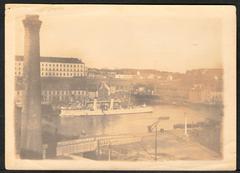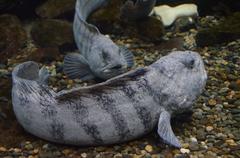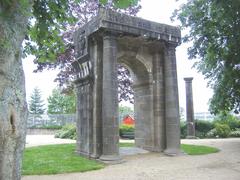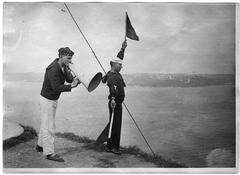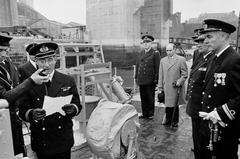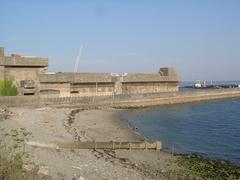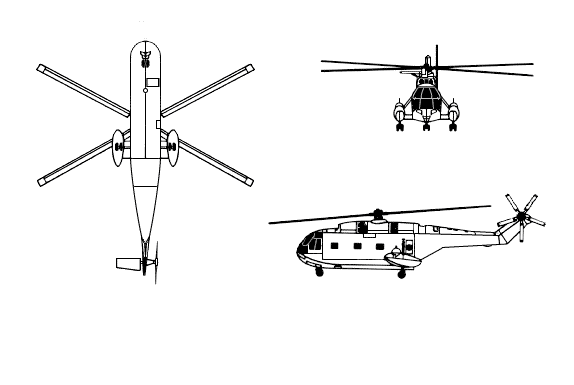
SA 321 Super Frelon in Brest, France: Visiting Hours, Tickets, and Guide
Date: 14/06/2025
Introduction: The Legacy of the SA 321 Super Frelon
The SA 321 Super Frelon is a hallmark of French and European helicopter engineering. Developed by Sud Aviation in the early 1960s, it is celebrated for its unique three-engine configuration and amphibious capabilities, making it one of the most versatile heavy-lift helicopters of its era. Serving the French Navy and various international operators for over four decades, the Super Frelon was crucial in anti-submarine warfare, search and rescue, troop transport, and humanitarian missions—playing a pivotal role during the Cold War and beyond (Helis.com, Aviation History Magazine).
Today, the Musée National de la Marine in Brest, France, allows visitors to explore this helicopter’s rich legacy. The exhibit features the Super Frelon in authentic Marine Nationale livery, with interpretive panels and interactive media that detail its technical innovations and operational history. This comprehensive guide provides up-to-date information on visiting hours, tickets, accessibility, nearby attractions, and tips to enhance your experience of this significant piece of naval aviation heritage (Musée National de la Marine de Brest, Aviastar).
Table of Contents
- Origins and Development
- Technical Innovations
- Operational History in France and Abroad
- Technological and Cultural Significance
- Visiting the Super Frelon Exhibit in Brest
- FAQs
- Plan Your Visit & Enhance Your Stay
Origins and Development of the SA 321 Super Frelon
The Super Frelon was developed in response to the French military’s need for a heavy, multi-role helicopter suitable for both naval and land operations. Building on the earlier SE 3200 Frelon, Sud Aviation introduced significant advancements in power, payload, and design. The prototype’s maiden flight on December 7, 1962, marked the debut of what was then the largest helicopter built in Western Europe. Its three Turbomeca Turmo IIIC engines provided exceptional redundancy and power for heavy-lift missions (Helis.com, Aviation History Magazine).
Technical Innovations and Capabilities
- Engines: Three Turbomeca Turmo IIIC turboshaft engines, each producing around 1,570 shp, for a total output of 4,710 shp.
- Rotor System: Six-bladed main rotor, five-bladed tail rotor, and foldable tail boom for shipboard storage (Aviastar).
- Capacity: Accommodates up to 27 troops or 15 stretchers; cargo hold capacity up to 5,000 kg (11,000 lbs) (Airliners.net).
- Performance: Max speed of 249 km/h (155 mph), maximum range of 1,020 km (634 miles), service ceiling of 3,000 meters (9,840 feet).
- Design Features: Amphibious hull, outrigger floats, rear-loading ramp, and retractable landing gear.
The Super Frelon set several world speed records in 1963, and its advanced avionics—especially in the ASW variant—pushed the boundaries of helicopter technology (Helicopter Museum).
Operational History in France and International Service
French Naval Aviation
From 1966 to 2010, the French Navy (Marine Nationale) operated the Super Frelon for:
- Anti-Submarine Warfare: Equipped with sonar, torpedoes, and depth charges.
- Search and Rescue: Long-range SAR missions in the Atlantic and Mediterranean.
- Logistics and Troop Transport: Efficient movement of personnel and equipment between ships and shore.
The Super Frelon participated in numerous exercises, humanitarian operations, and international deployments (French Navy Official Site).
International Operators
- Israel: Used for troop transport and special operations, notably during the War of Attrition and Yom Kippur War (IAF Official History).
- China: Produced locally as the Harbin Z-8, still in service in several roles (GlobalSecurity.org).
- Other Countries: Libya, Iraq, and South Africa also operated the Super Frelon.
Over 110 units were built, serving on four continents (Aviastar).
Technological and Cultural Significance
The Super Frelon’s triple-engine layout and amphibious design influenced subsequent European helicopters, including the Puma and Super Puma series (FlightGlobal Archive). Its four-decade operational span in French service and its impact on military and humanitarian operations highlight its importance in aviation history.
Visiting the SA 321 Super Frelon Exhibit in Brest
Location
The Super Frelon is displayed at the Musée National de la Marine de Brest, housed within the historic Château de Brest, overlooking the Penfeld River and the city’s naval port.
Visiting Hours & Tickets
- Open: Tuesday to Sunday, 10:00 AM–6:00 PM (extended hours in summer)
- Closed: Mondays and select public holidays
- Tickets: €8–€10 for adults, discounts for students and seniors, free for children under 18 (Brest maritime museum tickets)
- Booking: Online or at the entrance (advance booking recommended in peak seasons)
Accessibility & Visitor Experience
- Wheelchair Access: Exhibition areas are fully accessible, with ramps and elevators.
- Photography: Permitted for personal use, with restrictions on flash during special events.
- Interpretive Media: Panels in French and English, archival images, and interactive displays.
- Guided Tours: Available regularly in French and English; advance booking advised.
- Amenities: Restrooms, café, gift shop, and parking facilities on site.
Special Events and Nearby Attractions
- Events: The museum hosts lectures, workshops, and annual maritime festivals. Some events offer supervised entry into the helicopter’s cabin.
- Nearby Sites: Château de Brest, Musée de la Tour Tanguy, Oceanopolis marine center, and the harbor area with naval vessels.
Frequently Asked Questions (FAQ)
Q: What are the visiting hours for the Super Frelon exhibit?
A: Tuesday to Sunday, 10:00 AM–6:00 PM (extended in summer).
Q: How much do tickets cost?
A: Adults €8–€10; discounts for students, seniors, free for children under 18.
Q: Is the exhibit accessible?
A: Yes, the museum and outdoor areas are wheelchair accessible.
Q: Are guided tours available?
A: Yes, in French and English; book in advance for English tours.
Q: Can I enter the helicopter?
A: Interior access is generally restricted; occasional supervised access during special events.
Q: Is photography allowed?
A: Yes, but check for restrictions during specific events.
Plan Your Visit and Enhance Your Experience
Explore the story of the SA 321 Super Frelon up close at the Musée National de la Marine in Brest. For up-to-date visiting hours, ticket information, and event details, consult the official museum website. Enhance your experience by downloading the Audiala app for interactive guides and multimedia content, and follow the museum and Audiala on social media for the latest updates.
Whether you’re passionate about aviation, maritime history, or simply seeking a unique experience in Brest, the Super Frelon exhibit is a must-see attraction that brings naval heritage and technological innovation to life.
References
- Helis.com, Sud Aviation SA 321 Super Frelon
- Aviation History Magazine, Sud Aviation SA 321 Super Frelon
- Musée National de la Marine de Brest, Official site
- Aviastar, Sud-Aviation SA 321 Super Frelon
- Aviation Museum Guide, Brest Aviation Exhibits
- Helicopter Museum, SA 321 Super Frelon
- Airliners.net, SA 321 Super Frelon Specs
- French Navy Official Site, SA 321 Super Frelon
- IAF Official History, Super Frelon
- GlobalSecurity.org, Harbin Z-8
- FlightGlobal Archive, SA 321 Super Frelon
- Brest maritime museum tickets
- Tripomatic, SA 321 Super Frelon Location
- IPMS Nederland, Super Frelon Walkaround
- Heli-Archive, Super Frelon
